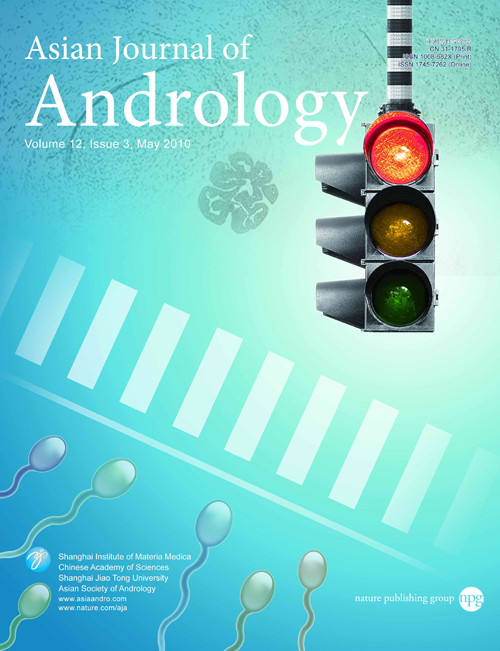-----Asian Journal of Andrology published a new study arousing worldwide attention
A study newly published online in Asian Journal of Andrology found that soy isoflavones function like estrogen once ingested, which may interfere with the development and function of human reproductive organs. After the release of this news on Nature News Wire, this study immediately aroused the attention of scientific press and peer researchers worldwide.
Asian Journal of Andrology online published a study of Chinese scientists Ren-Shan Ge on May 10, 2010. This study reported for the first time that soy isoflavone genistin, via its metabolic product genistein, inhibits enzymes involved in the production of testosterone in humans. Previous studies have mostly focused on the hormone-disrupting effects in testosterone production in rat models, but this new study described that soy isoflavone genistin inhibits 3β-hydroxysteroid dehydrogenase in human testis, which influences the secretion of testosterone by the testis. Soy-based food products have been increasingly used as a source of non-dairy dietary protein around the world. The popular use of soy-based dietsmayreduce blood androgen levels in humans and affect public health, particularly the infants who are raised on soy-based infant formulas.
This study was reported in many scientific news websites such as The Independent Science, ResearchSEA, DNAIndia, Thaindian News, Zopag, Linkmarking and Mauritius News. Then various commentaries were generated from researchers all over the world. Prof Ieuan Hughes from Cambridge University and Dr Paul Kroon from Institute of Food Research, Norwich Research Park, UK, commented that this study is only a subcellular test, but not in in vivo cells and that it is doubtable whether normal consumption of genistein in human may negatively affect sperm production in men because only 5% of soy isoflavones is present as genistein in human bodies. This study is only at a preliminary stage and further studies are needed to validate the effect of soy-based food products on human’s health, thus to guide people’s intake of healthy food.
For the full text of the research paper, please visit http://www.asiaandro.com/ or http://www.nature.com/aja. We would be glad to have your comment on this paper and welcome to submit commentary to Asian Journal of Andrology.

AJA's cover (image by AJA )
(News resource: Asian Journal of Andrology Editorial Office)